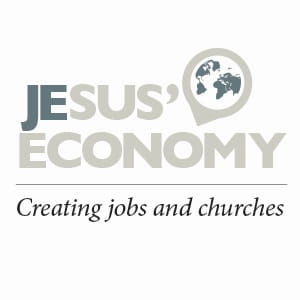If Jesus Ran the Economy, This Is What We Would Be Doing
Share

by John D. Barry, CEO of Jesus' Economy
From the beginning of the early church, there is a concern for the impoverished and for effective alleviation of poverty. Right off the bat, early Christians are pooling their resources for the sake of the marginalized and impoverished. Early Christians sold their stuff so that they could share resources with the hurting (Acts 2:44-45). Self-sacrifice is a core part of the gospel, as I argue in my book Jesus Economy: A Biblical View of Poverty.
JESUS’ ECONOMY IS BASED ON SELF-SACRIFICE
We have to be willing to sacrifice our own comforts for the sake of the impoverished. I can’t look at the situation in Bihar, India—where millions of people are living in extreme poverty—and deny them clean water or economic opportunities. As a Christian, I should experience a conversion in those moments of witnessing poverty. I should be inspired to give of my time and resources to empower the poor. I should be willing to go so far as to sell my house and my belongings. That’s at least what Jesus told one man (Matthew 19:16-22).
That’s precisely what my wife and I did—we put all of our resources into empowering the impoverished and bringing the gospel to the unreached. We sold our house and our stuff, for the sake of the mission. I’m not saying this to boast, because I can tell you that there is no glory in it. I’m saying this to note that I’m not asking you to do something I haven’t done myself. I’m also not saying everyone’s journey will be so radically life altering, but I do ask, “Are you giving enough that it hurts?” That’s the model of the early church.
Jesus has a different economy in mind than the one on offer in our world. He believes in empowering the impoverished. Jesus’ economy is based on self-sacrifice. Jesus’ currency is love.
JESUS’ ECONOMY MEANS GIVING JOYOUSLY AND INTELLIGENTLY
When the earliest Christians gave, it wasn’t about guilt (2 Corinthians 9:6-7). And likewise, their love wasn’t an empty love—one where I give of my resources without thought of relationship. I believe in intelligent love and I believe in love that calls people to a higher standard. I believe in this because the early church did. I also believe in love that respects the value of hard work (compare 1 Thessalonians 2:9; 2 Thessalonians 3:7-8). There is a time for charity, such as meeting a basic need like clean water, but people also need economic opportunities. They need jobs.
The early church built intelligence in their giving. We see this in the appointment of deacons—following an issue over distribution of charity to widows, one of the most impoverished groups of the day (Acts 6:1-7). Jesus would have us give in ways that multiply and to think about how we’re giving and to whom we’re giving.
This is why I believe in job creation efforts being a core part of the work of the church. We can meet a person’s need today or we can give them the ability to meet their own need tomorrow. But no matter what we do, showing Jesus’ love in word and deed should be our mission. We should live on mission and empower missions, so that all can know Jesus.
JESUS’ ECONOMY MEANS LIVING ON MISSION AND EMPOWERING OTHERS
The early church sent missionaries out, but their goal was to train and empower local leadership. Much of 1 Timothy and Titus is about this—the appointment of local elders and deacons. We also see Paul in 1–2 Thessalonians and 1–2 Corinthians working to instruct local leaders on how to lead their own church. Paul’s model was always about raising up indigenous leaders.
Today, we can do the same. We need to empower local leadership around the world. What we need is to sponsor indigenous church planting movements and to empower them with quality, Bible-focused training. And we need to empower them with strong project management, resources for community development, and let them sit at the center of an effort to renew a community.
Churches around the world should partner together, for the sake of both bringing the gospel to unreached people groups and to meet basic needs. And where there are needs to be met, we should meet them. Near the end of Paul’s letter to the Roman church, he requests that they join him and other churches in bringing together an aid package for the impoverished in Jerusalem (Romans 15:26-29).
As Christians, we need to have a holistic approach to life transformation. We need to be about creating jobs, planting churches, and meeting basic needs—one community at a time.
Imagine what could be if the church functioned this way—if we looked at the biblical model of self-sacrifice and lived with the principles of the early church in mind. Imagine how different our world be. Imagine what would happen if we had a truly Jesus economy in mind at all times.
Learn more at JesusEconomy.com.
Image Credit: ©Thinkstock
This long-form article is part of the Jesus' Economy weekly series, “Living for Jesus.”
Photo credit: ©Getty Images/Thitaree Sarmkasat

John D. Barry is the CEO of Jesus’ Economy, an innovative non-profit creating jobs and churches in the developing world. At JesusEconomy.com, people can shop fair trade and give directly to a cause they’re passionate about, such as bringing the gospel to unreached people groups. John is also the general editor of Faithlife Study Bible and the author or editor of 30 books.
